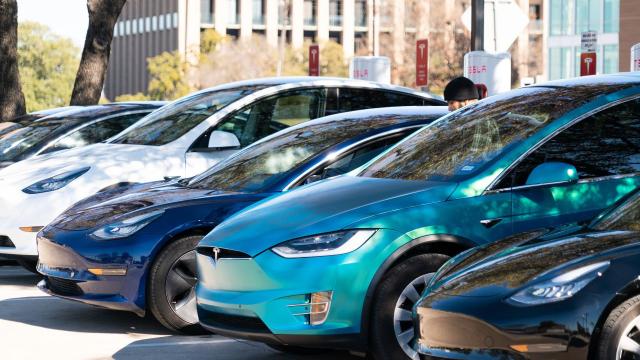Internal combustion (ICE) vehicles will be phased out in Canberra from 2035, the ACT government has announced.
The story comes from The Canberra Times, and since the announcement, the ACT Minister for Climate Change and Sustainability, Shane Rattenbury, has taken to Twitter to explain some elements of the plan.
You might have seen big news today that the ACT will phase out light internal combustion engine (ICE) vehicles from 2035.
We have also set an ACT target for 80-90% of new vehicle sales to be zero emissions vehicles by 2030. pic.twitter.com/ew97yItct4
— Shane Rattenbury MLA (@ShaneRattenbury) July 18, 2022
“It’s critical that Governments take these big policy decisions and set the pathway to a clean future, with plenty of notice to the community and businesses,” Rattenbury said on Twitter.
“Our ambitious strategy will dramatically reduce greenhouse gas emissions (transport creates over 60% of ACT emissions), engage vehicle manufacturers, boost ZEV [zero emissions vehicles] sales, generate new vehicle markets, new jobs and opportunities.
“The new measures will ensure we continue to lead the way to a zero emissions transport future, with all the environmental, community, and economic benefits that brings. Watch this space for more detail in the coming days.”
Before you ask: no, you won’t be arrested and dragged into a court of law for driving a petrol guzzler through the Australian capital.
The ban is on new vehicle purchases, meaning that from 2035 onwards, you’ll be unable to buy a petrol-fuelled vehicle in the ACT. The territory also plans for zero-emissions vehicles to make up 80 to 90 per cent of all vehicle sales by 2030, and to have zero emissions by 2045.
The ACT has actually been one of the most progressive Australian territories on EV uptake. Back in December, we reported on the expansion of Canberra’s Sustainable Household Scheme, offering up to $15,000 in zero-interest loans for the purchase of electric vehicles in the state. Canberrans also get two years of free registration with the purchase of an EV and get zero stamp duty.
It was a welcome incentive at the time, and it still is, considering that EVs in Australia start at $44,000 (they’re hardly affordable for most people), though it’s not the only government-run EV financial assistance scheme in the country. Some Australian states, like Victoria, New South Wales and Western Australia, offer several thousands of dollars in rebates with the purchase of an EV. Western Australia has the most generous rebate, with buyers able to score up to $3,500 back after a purchase.
Speaking of this, while the policy has seen praise from environmental groups, a major criticism of the 2035 Canberra ICE ban is affordability by that date.
We’ve seen the same arguments surrounding England’s 2030 ICE ban, but as Canberra is the first Australian state to say farewell to petrol vehicles, it’s a worthy question to ask if the technology will be affordable by then.
To be frank, we haven’t really seen the true “affordable EV” release yet. Again, they’re currently upwards of $40,000.
We’ve previously reported on speculation surrounding EV prices dropping and range parity with ICE vehicles, but truly we will have to wait and see.
Additionally, the second-hand EV market will be a lot larger by then, so hopefully, that translates into cheaper purchases, even if they’re not new cars.
Also, as I say a lot in my coverage of EVs, Australia doesn’t have fuel efficiency standards, which is holding local uptake back.
This target is achievable, in the best interest of drivers and as the IEA tells us, absolutely necessary to meet net zero by 2050. Well done ACT.https://t.co/Bz2wB6CBTx
— Behyad ‘fuel efficiency standards’ Jafari ⚡🚘 (@BJafari) July 17, 2022
Rattenbury says that more details will be revealed “in the coming days”.
